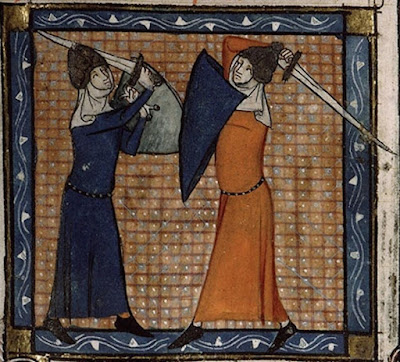After the battle of Evesham, the rebel forces in the southeast were concentrated at Winchelsea and Sandwich. The barons of the Ports were motivated by support of Simon de Montfort's widow, Countess Eleanor, and the fruits of piracy. Over the winter months of 1265/66 they sailed out to attack commercial shipping in the Channel, seizing vessels and even plundering the coast of Brittany.
Henry III sent his son, Lord Edward, and Roger Leyburn to reduce the Ports. A string of military operations followed, combined with Edward's campaign against Simon de Montfort junior in Lincolnshire.
Finally, in March 1266, the royalists were able to launch a combined land-sea assault on Winchelsea. On 24 March the town was stormed with great loss of life; many of the defenders were killed as Edward's shock troops forced the gates, others drowned as they attempted to escape by sea. Edward pardoned the surviving townsfolk and forbade his men from plundering the town, 'as if they were pirates'. A town that refused quarter was usually sacked without mercy, but it made little sense to destroy one of England's richest ports.
Via the final agreement, the barons of the Ports were permitted to have their lands, houses and chattels, as well as their traditional rights and liberties. This marked a dramatic change in royalist policy: in the immediate aftermath of Evesham, Henry had ordered the disinheritance of all surviving rebels.
This, inevitably, triggered a backlash and another round of civil war. After months of bitter fighting, the royalists were forced to change their tune. The alternative was endless conflict.


